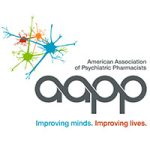NAMI HELPLINE
Messages and data rates may apply. Message frequency varies. Reply STOP to opt out. Reply HELP for help. See our Terms of Service and Privacy Policy for more information.
TRADEMARKS
The following are trademarks of NAMI: NAMI, NAMI Basics, NAMI Connection, NAMI Ending the Silence, NAMI FaithNet, NAMI Family & Friends, NAMI Family Support Group, NAMI Family-to-Family, NAMI Grading the States, NAMI Hearts & Minds, NAMI Homefront, NAMI HelpLine, NAMI In Our Own Voice, NAMI On Campus, NAMI Parents & Teachers as Allies, NAMI Peer-to-Peer, NAMI Provider, NAMI Smarts for Advocacy, Act4MentalHealth, Vote4MentalHealth, NAMIWalks and National Alliance on Mental Illness. All other programs and services are trademarks of their respective owners.
NAMI is a 501(c)(3) nonprofit (EIN 43-1201653).



